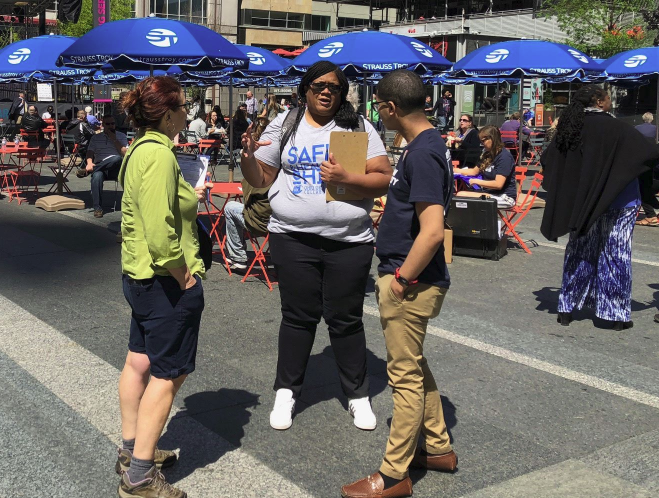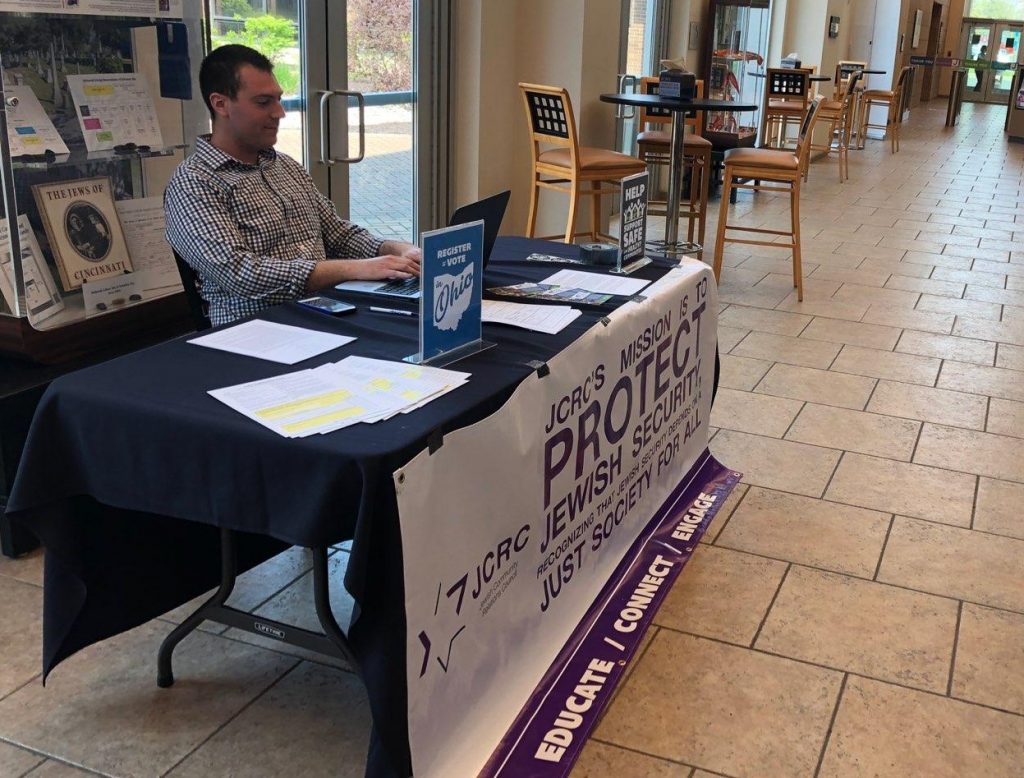Jewish Community Relations Council (JCRC)

A Call to Action: Jews and Criminal Justice Reform
“We often hear the assertion that prison is not a ‘Jewish’ issue. Many believe that few Jews spend time in prison, and that prison only serves to keep ‘our community’ safer. As we’ll see, these assumptions are both false and dangerous.” −excerpt from T’ruah, The Rabbinic Call for Human Rights on Mass Incarceration.
As Cincinnati’s Jewish Community Relations Council, our values call us to action on criminal justice reform. It is our moral obligation to learn from the struggles of our history, the lessons from our teachings, and the perspectives of our peers, to inspire a renewed sense of social responsibility and justice work for those who are in need of a second chance. It is to reflect on the ways in which we, as a Jewish community, can join with our neighbors to create a safer and healthier community for all.

In its Handbook for Jewish Communities Fighting Mass Incarceration, T’ruah gives ten reasons why criminal justice reform is a Jewish issue. They are summarized here:
- The Torah begins with the assertion that human beings are created b’tzelem Elohim—in the image of God. Jewish law and Jewish communities have spent millennia figuring out how to create a just society that treats both perpetrator and victim as creations b’tzelem Elohim, and in which we can all live safely.
- Jews believe that people can always repent (teshuva) from their mistakes and bad choices, and that society should be structured to encourage that process. Mass incarceration reform is in part about asking how our government can facilitate teshuvah and healing, rather than perpetuating cycles of violence.
- Jews do get arrested and spend time in jail and prison. There are an estimated 12-15,000 Jews incarcerated in state and federal prisons in the US. This figure doesn’t account for those held in local jails. Because of the widespread narrative that Jews don’t go to prison, the incarcerated, formerly incarcerated, and their families feel significant shame in discussing their experiences within their Jewish communities.
- More and more members of Jewish communities are Jews of color. Even for those of us who are, ourselves, white, our extended networks include people of color whom we care about. These include our friends, colleagues, neighbors, romantic partners, and in-laws. Given the racial inequities of our criminal justice system, people of color are more likely to be arrested, charged, and convicted, as well as to fall victim to violence by police officers.
- Mass incarceration has created a “lost generation”—of adults missing from society and of children growing up without their parents. This has direct, immediate impacts on our national economy, as well as long-term effects on the health of our communities.
- By playing on fears about race, class, and violence, mass incarceration maintains divisions in our society. This makes it harder for groups who might otherwise be natural allies to form partnerships and to work together to solve societal problems.
- Our taxpayer dollars that are spent on mass incarceration are diverted away from other needed public goods, such as education, healthcare, environmental protection, and social services. [Note: According to the Vera Institute and US Census Bureau, it costs about $26,000 per year to incarcerate a prisoner in Ohio compared to about $12,000 per pupil per year for a child’s K-12 education.]
- Policing priorities and corrections and sentencing practices ironically can diminish public safety, rather than strengthen it. A focus on quality of life infractions (often called “broken windows” policing) takes time and resources away from solving more serious crimes. Obstacles to reentry (including barriers to employment, education, and housing) increase the likelihood that returning citizens will commit crimes again.
- The blurring of lines between policing and fighting terrorism threatens all of our civil liberties.
- Our own Jewish history includes experiences of being targeted by police violence as recently as America in the early 20th century. We have experienced surveillance and have been discriminated against for not looking white. This historical memory creates a duty to have empathy for, and to work in alliance with, the people targeted today.
As Jews, we have the values, relationships, and capacity to change our communities for the better. In Ohio, JCRCs have an opportunity to help reform our criminal justice system with the Neighborhood Safety, Drug Treatment, and Rehabilitation amendment.
This initiative is something that the JCRC, along with many other Cincinnati Jews are already advocating for. The amendment seeks to rehabilitate, rather than incarcerate, low-level drug offenders and shift the monies saved to fund drug prevention, trauma care, and additional rehabilitative staff for prisons among other things.
The JCRC brought in a national expert from the Jewish Council on Public Affairs, and partnered with Reform Ohio and Jewish young professional groups to uncover the connections between Judaism and criminal justice reform. In addition, the JCRC trained community members to collect ballot signatures and attended leadership assemblies to unite our efforts with the larger community.
We the people have the power to get this initiative on the ballot in November. Are you ready to join us?
Stay connected to our news and stories: sign up for our newsletter here.

